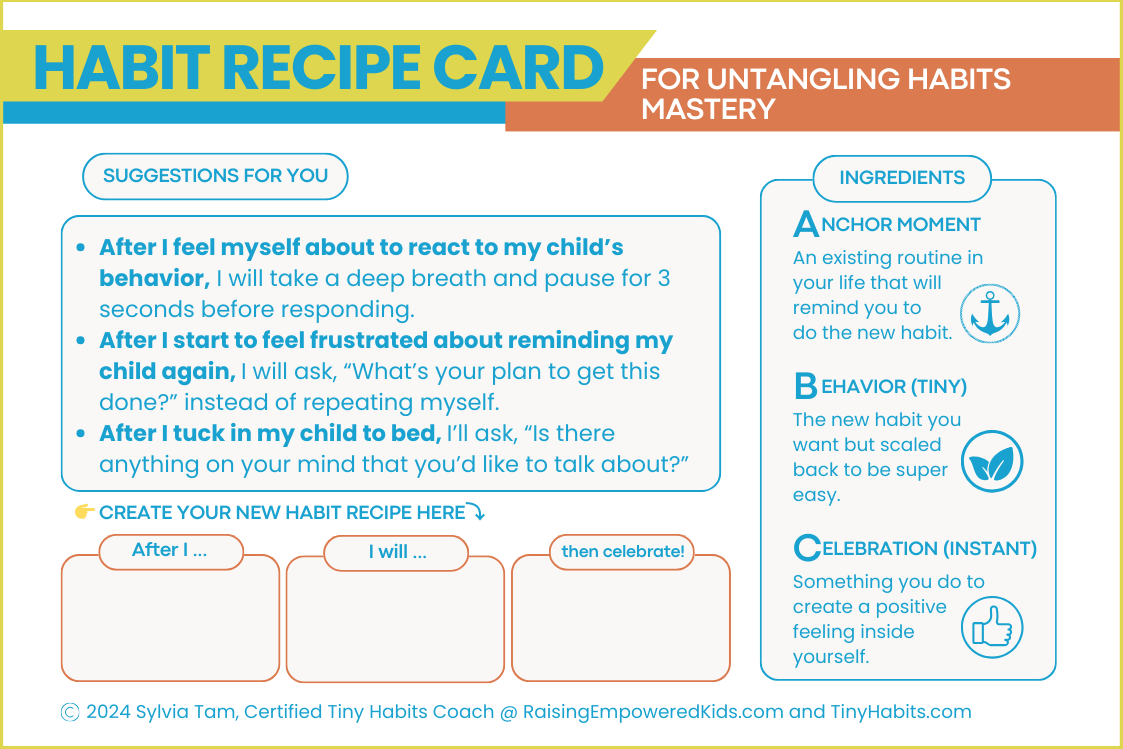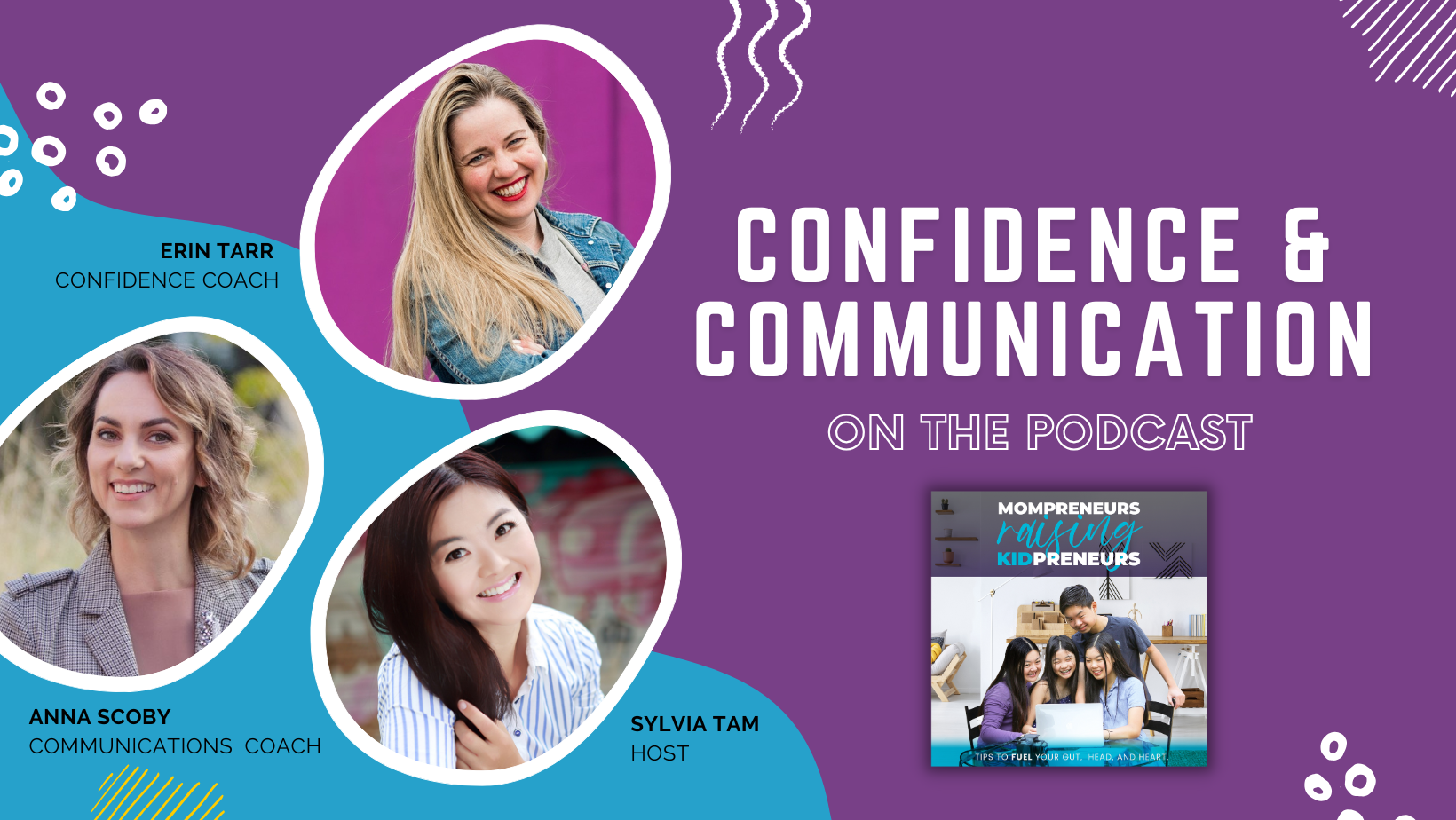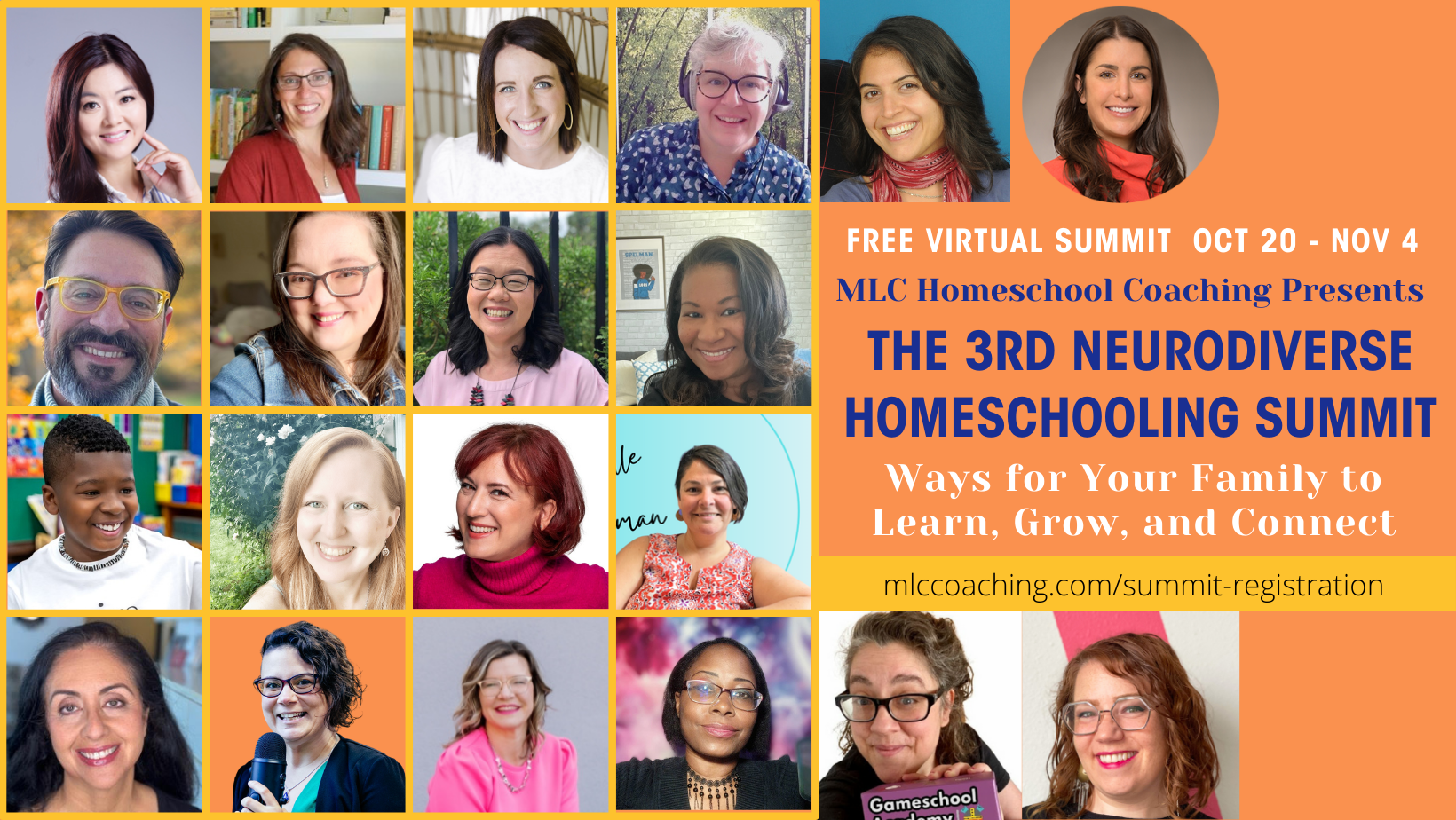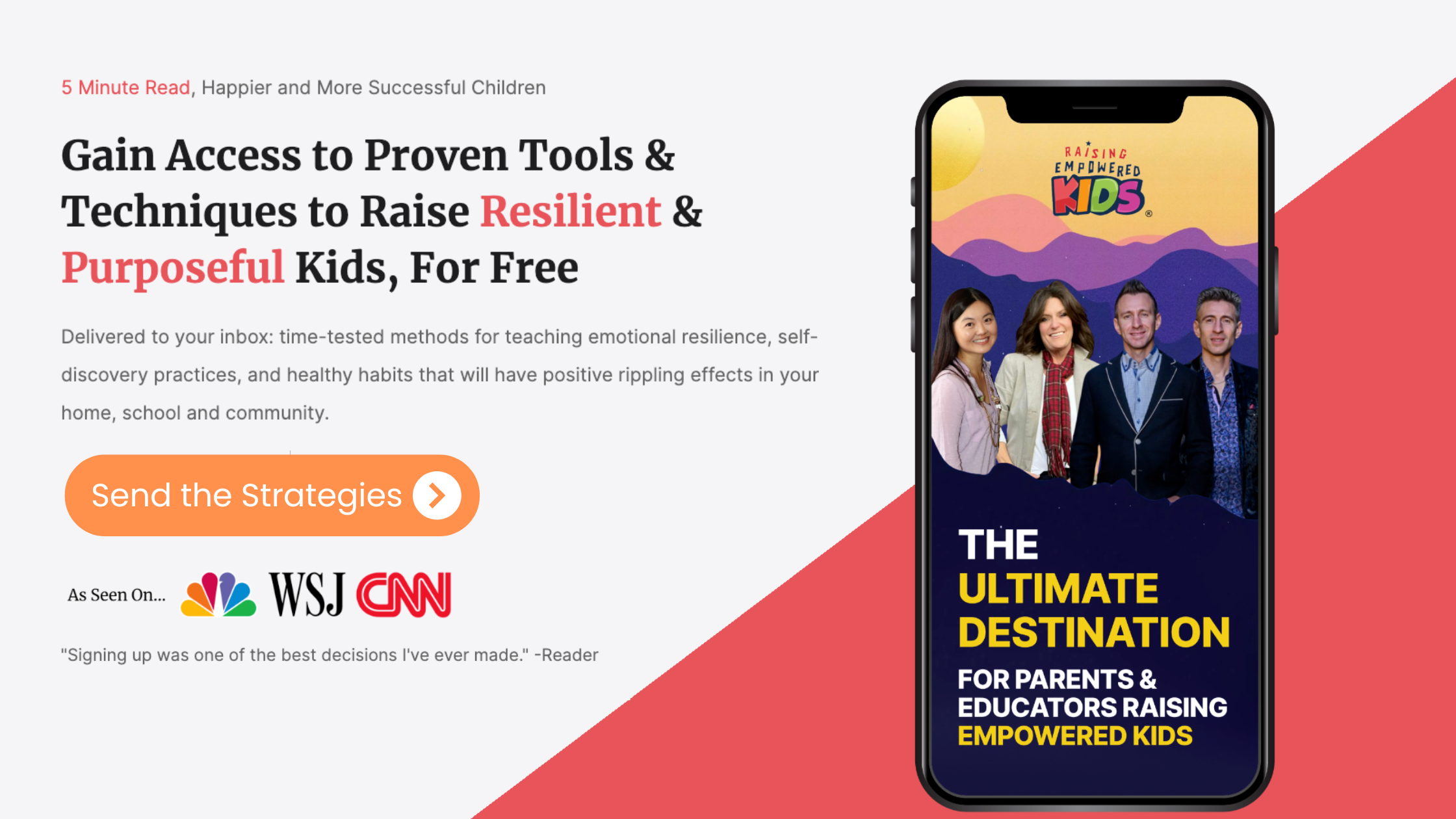Hard conversations are good.
How to speak easier with your kids plus FREE Parenting Summit starts today!
Every few months, my husband and I take time away for what we call our "quarterly retreats." It’s a chance to sit down, uninterrupted, to reflect on the highs and lows, and get real about what’s going on in our lives.
What I love most is how much clarity we gain by talking things through, especially the tough stuff. Afterward, we always feel more connected and ready to tackle what’s next.
This kind of openness comes from being vulnerable, which Dr. Brené Brown talks about a lot. From her research, she says, to be brave, we have to be vulnerable first.
As parents, we sometimes avoid the hard, sensitive conversations, but what if we flipped that? Instead of thinking, "I have to talk about this," think "I get to." Those tough moments are actually chances for both us and our kids to grow and build resilience together.
And as I reflect on the power of these conversations, I'm excited to share that I'll be speaking at a free parenting event this Wednesday—find the exclusive registration link at the end of the newsletter!
Plus, have you wanted it to be easier to to have tough talks with your kids? This month's Habit Recipe Card is designed just for that!


Having tough conversations with our kids is essential for their emotional growth and resilience. They don’t just tackle the issue at hand; they also help nurture resilience in children.
Research shows that these dialogues enhance emotional regulation and create deeper trust, paving the way for stronger connections and personal growth.
Here are a few strategies that have worked for me in navigating these discussions.
💚 Create a Safe Space for Dialogue
Foster an environment where your child feels safe to express their feelings. For me, this means actively listening to myself as a parent. I make sure that everything I say counts, and I save my serious voice for serious situations. This approach has led my kids to share everything on their minds with me. When they know I’m calm, fair and genuinely listening, they feel comfortable opening up.
🙉 Practice Active Listening
It’s important to demonstrate commitment to the conversation by putting down distractions and making eye contact during discussions. If there are moments when you’re busy and unable to engage fully, it’s okay to tell them that you need to focus on something else for now. Making a note to revisit their thoughts in the days ahead shows that you care and were paying attention, reinforcing the value of their feelings.
🥹 Embrace the Power of Vulnerability
Share your own experiences and feelings. I’ve found that when I talk about my challenges and emotions, it opens the door for my kids to do the same. For instance, I might share a story about a time I felt overwhelmed or made a mistake. This connection strengthens our bond and helps them see that it’s okay to express their struggles, fostering resilience as they realize they are not alone.
Dr. Brené Brown and Oprah Winfrey talk about the power of vulnerability in a way that resonates with this idea—watch their conversation to see how embracing vulnerability can transform your relationships.
Oh and one more thing...sometimes the best time to bring up the conversation is not in the instant, especially if the mood isn't in your favor. So wait it out - there will be a better time and space to turn it into a more engaging one.
Care to share your best tip? Post it in the REK Facebook Group to help others stay on top of their family’s ever-growing collection of photos too.

Some of you have asked me about how to break bad habits instead of just growing new ones. The key is to untangle them by being proactive rather than reactive.
So instead of focusing on breaking unwanted habits, you replace them with tiny, positive ones that shift behavior over time. When you build new habits, it becomes easier to handle those tough situations with your kids more effectively.
Here are three Tiny Habit recipes to help you think about habits you can create to move from reactive to proactive responses:
🌱 Untangle Reacting Too Quickly
Anchor: After I feel myself about to react to my child’s behavior...
Tiny Habit: I will take a deep breath and pause for 3 seconds before responding.
Outcome: This proactive pause gives you time to calm down and respond with more clarity, creating a more thoughtful and positive interaction.
🌱 Untangle Nagging
Anchor: After I start to feel frustrated about reminding my child again...
Tiny Habit: I will ask, “What’s your plan to get this done?” instead of repeating myself.
Outcome: Encourages accountability and shifts the conversation from nagging to empowering your child to take responsibility for their tasks.
🌱 Untangle Avoiding Difficult Conversations
Anchor: After I tuck in my child to bed...
Tiny Habit: I’ll ask, “Is there anything on your mind that you’d like to talk about?”
Outcome: Creates proactive space for open communication, making hard conversations easier before they build up.
Come up with your new habit or print this helpful recipe card below to get started!

If you’re having a hard time remembering your habit, you want to make the anchor less fuzzy and more clear by identifying the trailing edge—the last thing that happens before your habit needs to occur.
For example, if your anchor is to remain calm after your child responds 'no,' you might say, 'After my child responds "no," I will take a deep breath and count to three before I reply.'
By clarifying this trailing edge, you create a specific trigger that can help you remember to practice your new response. Don't give up - you got this!

In this very special and fun episode, join me and experienced kid coaches Erin Tarr and Anna Scoby as they share clever and creative strategies to get you excited about your next courageous conversation with your children.
Erin, founder of Fierce & Flourish, empowers tween and teen girls with confidence, while Anna, founder of Project Be You, focuses on helping children grow into strong communicators.
Tune in to Episode #21, "Confidence & Communication" for insights that will inspire and empower you to nurture meaningful connections with your kids!
Listen on Apple or Spotify Podcast.

Explore more inspiring stories and strategies on the Mompreneurs Raising Kidpreneurs podcast, where I shine the light on purposeful parents who are empowering their kids, just like you!

As we wrap up this edition, I’m excited to invite you to join me at the 3rd Neurodiverse Homeschooling Virtual Summit presented by MLC Homeschool Coaching that starts today Nov 20th! Alongside 21 incredible speakers, I'm honored to be a part of this life-changing event to empower homeschooling parents of neurodivergent kids.
Don't wait - register for the free virtual summit here to hear a different expert each day talk on valuable topics like self-regulation, overcoming power struggles, and the transformative power of kidpreneurship (that's me speaking Wednesday!).

Be sure to look out for our next Halloween edition, where we’ll have a fun, monstrous surprise for you and your kids!
And keep having all the laughs, because in those everyday joyful moments, you’re supporting their resilience in ways you might not even realize.
As Brené Brown says, "Joy, collected over time, fuels resilience—ensuring we'll have reservoirs of emotional strength when hard things do happen."
With love,
Sylvia Tam, The Purposeful Parent & Certified Tiny Habits Coach

